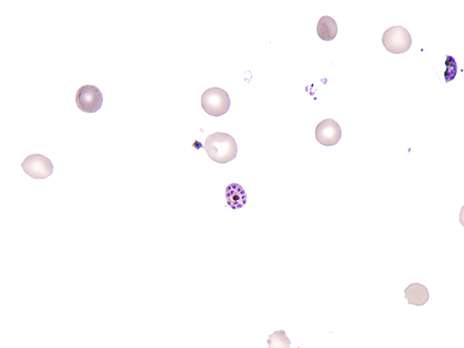Researchers describe new way to attack malarial parasite in blood cells

Yale University researchers have found a new way to slow the development of malarial parasites within blood cells they infect, even in some drug-resistant strains that are on the rise in many parts of the world.
Malarial parasites are transmitted to humans by some species of mosquitos that feed on blood. Almost 2 million people annually are sickened by malaria and more than 600,000 die.
"Drug resistant strains are becoming a very serious problems in places like Southeast Asia," said Yale professor Sidney Altman, a Nobel laureate and senior author of the study.
Altman's lab identified a way to easily modify genes of the malaria parasite P. falciparum to interfere with development of the parasite within blood cells, which the organisms destroy, causing severe anemia. The technique slowed development of parasite even in strains resistant to two common forms of drug treatment.
The work appears in the journal Proceedings of the National Academy of Science the week of Sept. 7.
More information: Targeting protein translation, RNA splicing, and degradation by morpholino-based conjugates in Plasmodium falciparum, www.pnas.org/cgi/doi/10.1073/pnas.1515864112



















